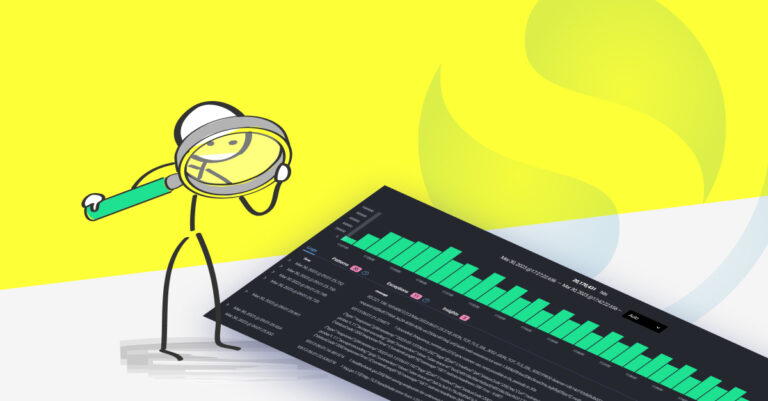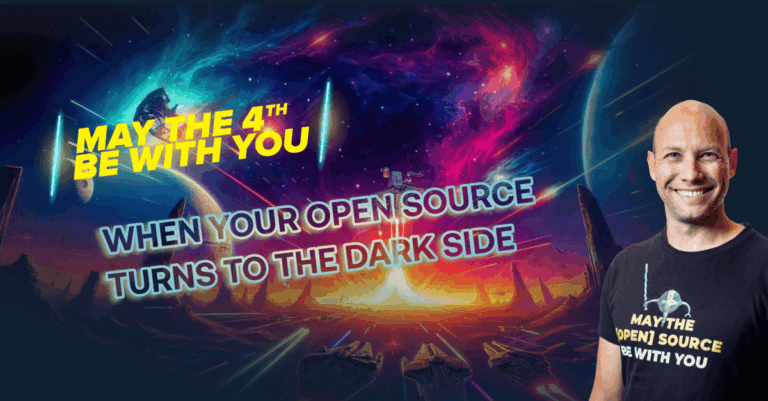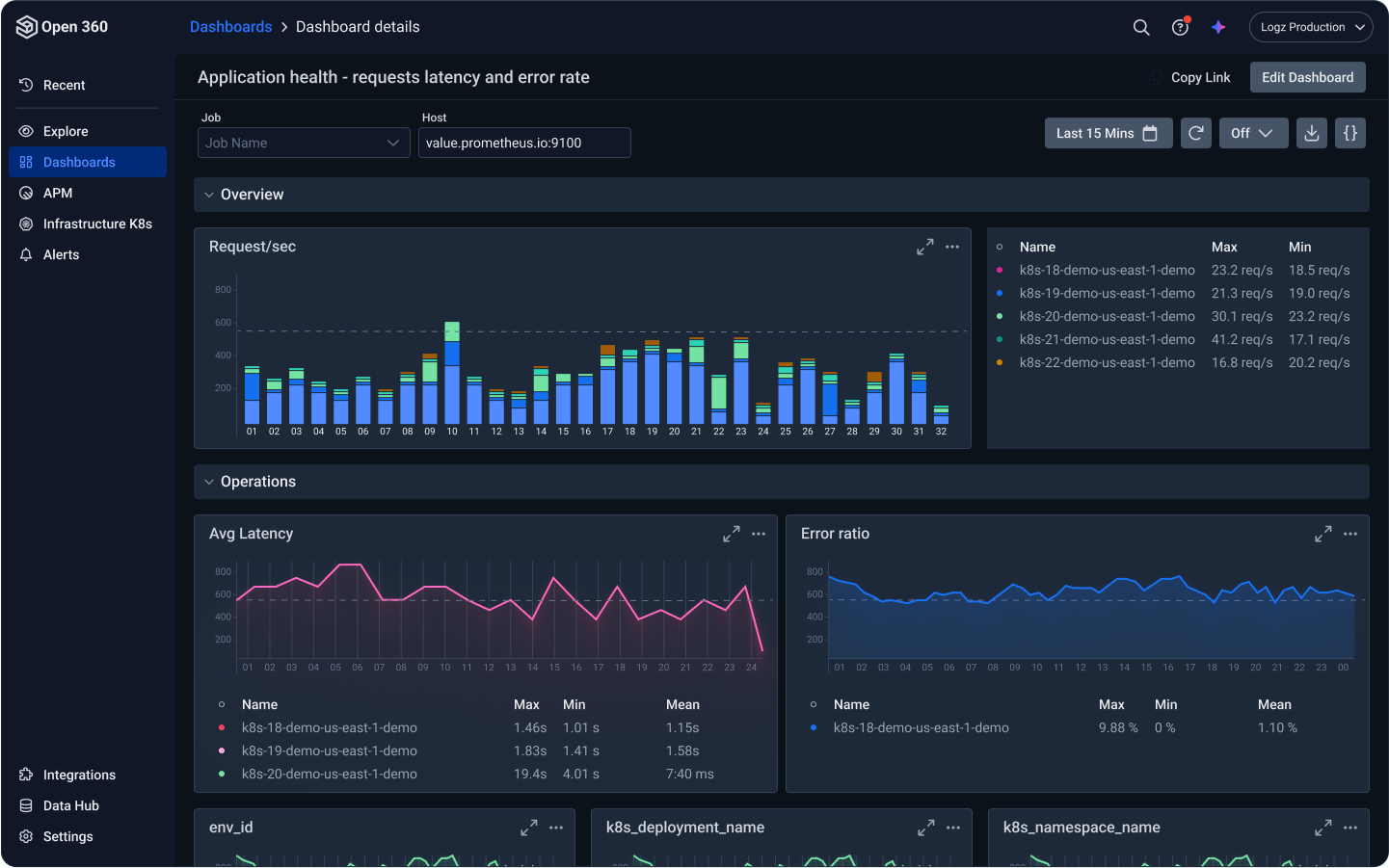
Redis is No Longer Open Source. Is Valkey the Successor?
June 27, 2024
Redis is no longer open source. In March 2024 the project was relicensed, leaving its vast community confused. But the community did not give up, and started work to fork Redis to keep it open.
On my recent OpenObservabilty Talks episode, I delved into Valkey, a prominent fork of Redis. Valkey was established under The Linux Foundation by former Redis maintainers, and brought together important figures from the Redis community, as well as leading industry giants including AWS, Google Cloud, Oracle and others. Valkey has rapidly gained momentum and just reached General Availability (GA).
On the episode I hosted Kyle Davis, the Senior Developer Advocate on the Valkey project, and a past contributor for Redis. Together, we discussed the motivations behind Valkey’s creation, heard stories on its foundation and journey to GA, and learned of its Redis compatibility, roadmap and implications for the open-source community. We also shared updates from Valkey’s first Contributor Summit, which took place this month in Seattle.
The Emergence of Valkey Following Redis Relicensing
On our previous episode we focused on the decision to relicense Redis, and we covered that in detail with David Nally, Director of Open Source Strategy at AWS.
On this episode, Kyle told us about the initial upset feelings when he heard the news that Redis would be relicensed.
“It’s like going out to your car or something and realize someone stole the wheel off of it. It’s not the same thing anymore,” he said. But shortly after, the work began on Valkey, which showed up as GA less than a month after the Redis announcement.
Following the announcement on Redis relicensing, several forks of the project started to pop up, such as Redict and Garnet. As Valkey appeared, however, I noted it seemed like the strong candidate among those that started appearing. There are several health indicators for any of these projects that Valkey had in its favor—most notably, that the core maintainers of the original project had also kicked off Valkey.
Valkey’s Technical Steering Committee currently has six members: Madelyn Olson of Amazon, Zhao Zhao of Alibaba, Ping Xie of Google, Viktor Söderqvist of Ericsson, Wen Hui of Huawei and Zhu Binbin of Tencent. They duly deserve the credit for initiating and driving the fork.
Additionally, Valkey gathered major companies in the tech space including Amazon, Google, Huawei, Ericsson and others, which lends credence and serious backing to the project. Yet, the project was formed under the auspices of the Linux Foundation, which provided the vendor-neutral foundational open source basis for growth. Lastly, Valkey keeps Redis’ existing open source license, namely BSD 3-clause.
The most astonishing thing was that it took the community less than a month from the day Redis relicensing was announced to create the fork to joining the Linux Foundation and releasing a generally available version. Having seen a few forks in my life, this is rather extraordinary. Kyle joked that “not enough sleep” is what led to Valkey arriving so quickly.
Valkey Roadmap and Adoption
Valkey is meant to serve as a drop-in replacement of Redis, and they’ve tried to make the end user process of moving from Redis 7.2.4 to Valkey’s 7.2.5 release (the first GA) as seamless as possible, and with as little as a single line in a YAML file, according to Kyle.
“We want to make sure this is something that we’re not going to ruin anybody’s day by using,” Kyle said. “We’ve gone to great lengths. The server for Redis was redis-server and the CLI was redis-CLI. We included symbolic links. When you install it, we want you to use valkey-server, or valkey-CLI, but if you accidentally type redis-CLI you’ll still get us.”
Valley keeps not only the API and CLI compatibility with Redis, but also full compatibility with the RESP the serialization protocol employed by Redis.
Next up is Valkey’s first major release, version 8.0, which according to Kyle should come out later this summer (2024). Kyle mentioned that one of the big things for that release would be around changing how IO threading works beyond Redis’s single-threaded event loop, to increase performance. But he reassured, despite the major version, there are no API changes planned.
There have been some successful early stories to date on Valkey adoption. In fact, during Valkey’s inaugural Contributor Summit earlier this month, they announced six companies joining the Valkey project, including Broadcom, DigitalOcean, and Instaclustr by NetApp. And over a dozen companies in total joined the summit to contribute from their respective angles.
“We had some hardware manufacturers there,” Kyle shared, “which I thought was super interesting, who said ‘here’s a bunch of hardware for you to test on.’”
Kyle noted it’s fascinating to see the rapid adoption of Valkey by Linux distributions such as AlmaLinux, Fedora and Alpine. Many of these distros, being users of Redis, needed to switch due to their commitment to open source and the reluctance to package non-open source binaries. Most Linux distributions now offer Valkey, with Fedora 41 set to replace Redis entirely with Valkey in its October release. Fedora 41 will provide a transition package for users, ensuring a smooth switch.
Alpine Linux is also moving towards this change in its 3.10 release, and other distros like RHEL are expected to follow, although their transition might take longer due to different release cycles. At the Contributor Summit, discussions on Ubuntu’s transition highlighted the significant impact this change will have on a vast number of Linux users.
There are other communities out there which rely extensively on Redis. Ruby on Rails uses by default Redis, and in the Python community, things like Django rely on Redis. I’m curious to see how these communities will address the Redis relicensing and the Valkey open source alternative.
Want to learn more? Check out my OpenObservability Talks episode: Redis is No Longer Open Source. Is Valkey the Successor?











